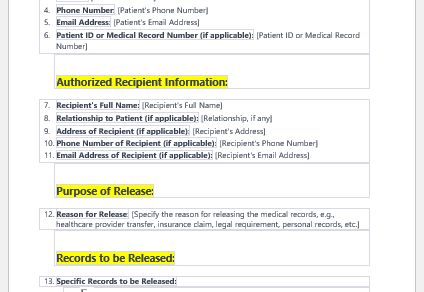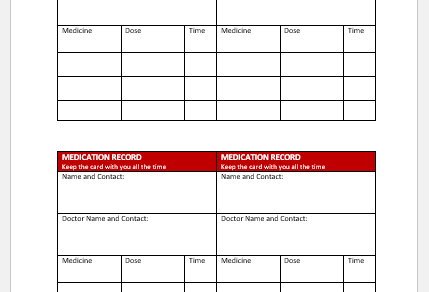To assess the psychology of a person, mental healthcare professionals use a tool commonly known as the psychiatric evaluation form. This form is not used for diagnostic purposes, as doctors have more accurate and effective medical tools to do that. However, it helps them initiate the treatment process for people who are going through any type of mental disease or disorder.
It is a very structured document that is being used by psychiatrists when they need to collect information from the patient who visits them concerning any sort of mental problem. All those healthcare practitioners who want to take care of the mental and emotional health needs of their patients are also seen using the sheet of assessment.
What are the benefits of using the psychiatrist assessment form?
A few of the benefits are being discussed below:
It helps in an accurate diagnosis
Diagnosis of mental ailments is a bit tricky, as sometimes psychiatrists need to pay attention to the patterns and behaviors of their patients and monitor them for a week or more before they can make a diagnosis. In addition, people often need to be patient while their disease is being diagnosed and treated. When the assessment form is used, the diagnosis of the patient becomes accurate as it is supported by lab tests and screenings.
It is useful in making a treatment plan
Since these documents are helpful for diagnostic purposes, they are equally helpful in devising treatment plans for patients. The assessment of the individual is critical for making a plan of treatment. Since this form helps in this matter, an effective plan can be made.
It helps in monitoring the progress of the patient
If the patient is already on medication, the assessment tool can be used by doctors to see their progress. There are numerous details regarding the behavior and trauma response of the patient collected through this form. It is used at regular intervals to determine whether the patient is showing any improvement in his behavior or not. Doctors find it extremely effective because it confirms what they have determined with their medical insight.
What are the parts of the psychiatric evaluation form?
Here are some main elements of this form:
Information about the patient
Information about the patient is collected, which includes the name, gender, and date of birth of the patient. The date on which the assessment is being carried out is also mentioned, as it is used for recordkeeping purposes.
Problems of the patient
This part of the document asks the patient to explain why he needs to get a psychiatric consultation. Here, he has to describe the reason for visiting. Some documents provide options, whereas others leave this section as an open-ended answer, and people have to describe their issues.
Medical history
Doctors do not treat patients unless they have a comprehensive medical history of that person, because they can’t diagnose anything or prescribe any medicine without being aware of the health issues the patient has suffered from in the past. Therefore, the patient provides the names of the diseases he has faced in the past and medications he has taken, along with information on the dosage.
Psychiatric history
This part of the form asks people to describe what types of psychiatric issues they have faced in the past. If there were any diagnoses, they should also be mentioned here. This helps his doctor treat the patient. In some cases, the family history is also taken.
Symptoms
There is a list of symptoms, which are usually very common. The patient is asked to choose those that he has been experiencing. Again, this helps in the diagnostic process.
Details regarding substance abuse
If the patient has used any substance or is currently using it, he should name them without being afraid, as they are used only for informational purposes. Sometimes he is directly asked if he is an alcoholic or was in the past, and if there is any other drug that he has taken or is currently taking.
Legal consent
At the end, the patient is asked to give consent for the hospital to share his information with others for treatment and diagnostic purposes.
Preview
- Mental Health Evaluation Forms
- Forms Used by Pediatricians
- Various Forms Related to Pregnancy Verification
- Common Forms Used by ENT Specialists
- Pain Diary Worksheet Template
- Forms Commonly Used by Old Age Homes
- Medical Treatment Consent Form
- Home Exercise Program Worksheet
- Forms Used for Mental Health Assessment
- Forms Used by Psychologists
- Medical Forms Commonly Used by/for Students
- Assessment Consent Form
- Forms Used by an Anesthesiologist
- Not Fit to Fly Certificate Template
- Home Visit Consent Form for Schools



